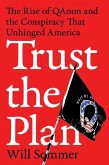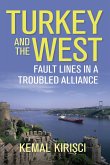Conventional political theory holds that the sovereign state is the only legitimate source of order and provider of public goods in any society. But Hezbollah and ISIS in the Middle East, pirate clans in Africa, criminal gangs in South America, and militias in Southeast Asia are examples of nonstate actors that control local territory and render public goods that the nation-state cannot or will not provide. Militants, Criminals, and Warlords takes the reader around the world to areas where state governance has broken down-or never really existed. The vacuum has been filled by insurgent and terrorist groups, local gangs, and militias, some with ideological agendas and others focused primarily on economic gain. Many of these actors are eventually accepted by local populations and develop an enduring presence, especially where states are weak or illegitimate. The authors show that the rest of the world has more than a passing interest in these challenges, in part because transnational crime and terrorism may interact, but also because failed states can create dangerous spillover effects, fan regional conflicts, and even threaten the very foundations of the international order. How should the international community respond to local orders dominated by armed nonstate actors? And are local orders that compete with the state necessarily bad? The United States and its allies have generally prioritized the state above all else, while failing to accommodate-or even understand-the local cultural and religious context. From the civil wars of the Middle East and Asia to the streets and prisons of Latin America, this book challenges longstanding approaches to governance and state-building and proposes a different path forward.
Hinweis: Dieser Artikel kann nur an eine deutsche Lieferadresse ausgeliefert werden.
Hinweis: Dieser Artikel kann nur an eine deutsche Lieferadresse ausgeliefert werden.








